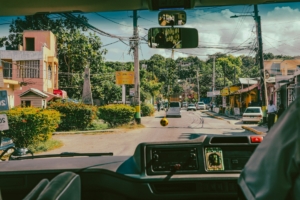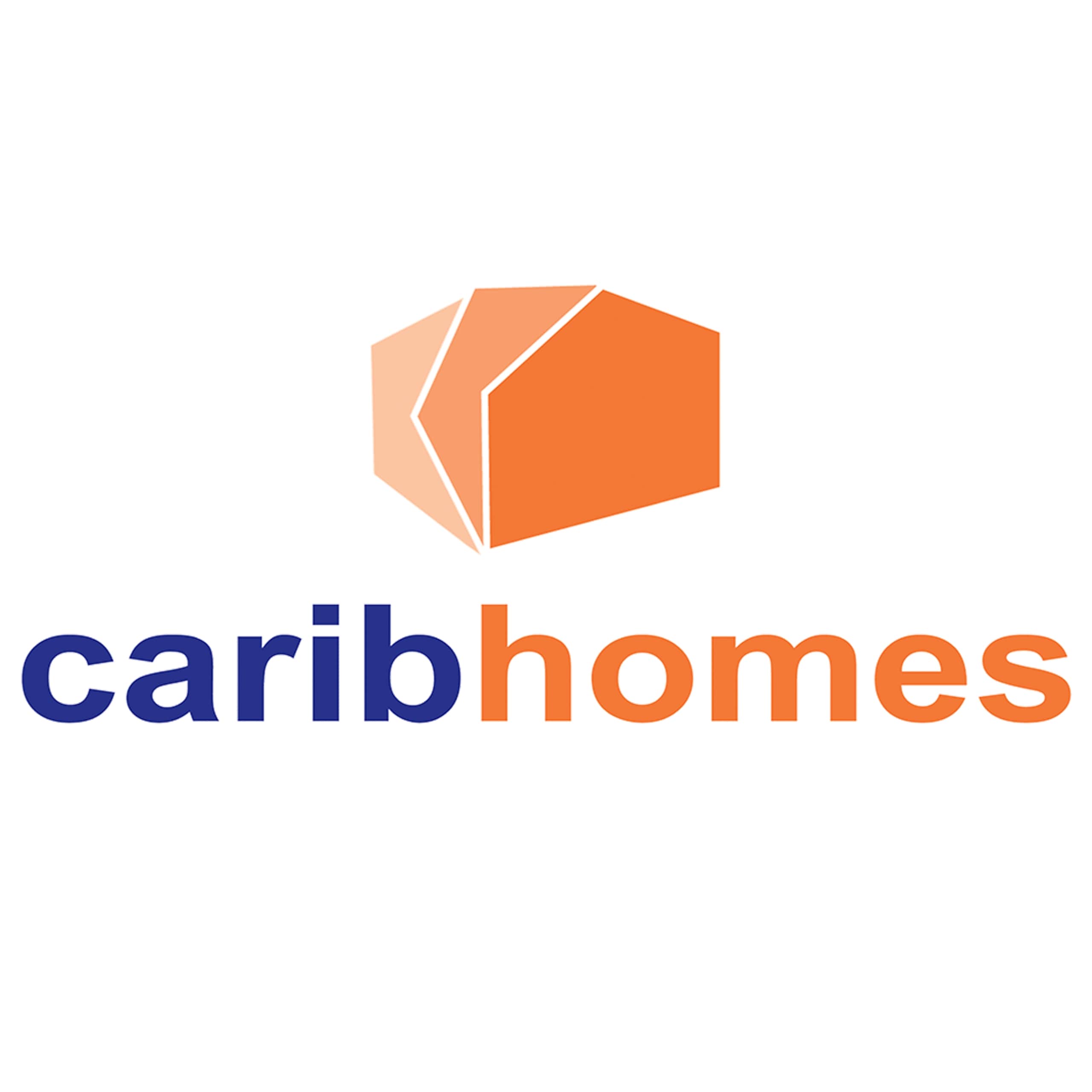Published by: Team Caribhomes
Jamaica’s rhythm goes beyond ska & reggae. This island country is a vivid mosaic of culture, history, and natural beauty. For prospective property buyers, Jamaica offers ocean breezes, tropical charm, and a spectrum of neighborhoods, each with its own character. Whether you’re eyeing Kingston’s bustling energy or Montego Bay’s relaxed coastal vibe, assessing neighborhood safety and infrastructure when buying property in Jamaica is essential. Like tuning a guitar, this process requires a sharp ear for details and a steady hand in decision-making.
Safety: More Than Meets the Eye

Safety is personal. A neighborhood’s sense of security often extends beyond crime statistics. Start by observing its patterns – when does the street come alive, and when does it settle? Talk to locals not just to gauge their perception of safety but to understand the social pulse. A neighborhood where children play freely, or neighbors greet each other warmly may signal a close-knit, secure community.
If you’re exploring areas, use your intuition alongside practical tools. Visit during the day and again at night. A vibrant street under the sun might reveal different dynamics after dusk. A lively neighborhood can still feel secure in Jamaica, where life often spills into the streets through music or impromptu gatherings.
Leverage local resources, including police station records and neighborhood associations. Their insights can clarify any uncertainties. Also, avoid miscommunication with movers when planning to relocate; their familiarity with the area might reveal logistical insights. It might warrant a closer look if they’re apprehensive about navigating certain streets or unfamiliar with an area.
Visit the area you’re considering at different times of day and night to get a full sense of its atmosphere and dynamics.
Infrastructure: Beyond Paved Roads
Infrastructure shapes how you live. The roads you drive, the water you drink, and the electricity power your home. In Jamaica, infrastructure varies widely from region to region, so understanding these details can transform your property search.
Start with accessibility. Is the neighborhood well-connected to major roads? Potholes are common on Jamaican roads, especially in rural areas, so consider the state of the streets. While some neighborhoods boast smooth roads that hum under your tires, others may challenge you with rugged paths.
Utilities are another cornerstone. Verify access to reliable water, electricity, and internet services. Water restrictions are a reality in some areas, and intermittent power outages are possible. If you plan to work remotely or stream your favorite Bob Marley album without interruptions, internet stability will be a priority.
Public services like waste collection, street lighting, and drainage systems also deserve attention. Poor drainage, for example, can lead to flooding during heavy rains – a consideration in Jamaica’s tropical climate. Visit after a rainstorm, if possible, and observe how the area manages excess water.
Community and Its Role in Safety and Infrastructure
Every neighborhood has a soul shaped by its people. In Jamaica, the communal spirit often adds an intangible layer of safety. A tight-knit community is a safety net of sorts; people watch out for each other and their surroundings. Ask about community events or initiatives – whether it’s a neighborhood clean-up or a local farmers’ market, these activities reflect the area’s collective commitment to its residents.
Schools, hospitals, and local businesses are part of the infrastructure, too. Even if you don’t need a school or frequent medical care, these establishments indicate a well-serviced area. They often contribute to a neighborhood’s long-term stability and value.
When visiting neighborhoods, don’t just look at the houses; look at the people. A vibrant sidewalk culture – small vendors selling snacks, teenagers on bikes, elders chatting in shaded corners – indicates more than activity; it suggests ownership and pride in the area.
Balancing Safety with Lifestyle
Jamaica’s neighborhoods are as diverse as its dialects. What feels safe and suitable to one person might not resonate with another. If you’re drawn to the urban buzz of Kingston, neighborhoods like New Kingston or Liguanea might appeal, offering a balance of modern conveniences and cultural experiences. On the other hand, if you’re chasing serenity, Ocho Rios or Negril’s quieter corners might align with your rhythm.
The key is understanding your lifestyle needs. If you value nightlife and proximity to cultural landmarks, prioritize urban infrastructure and public transportation. If your heart leans toward a quieter, scenic life, verify access to essential services like supermarkets and medical clinics in less-populated areas.
Trust but verify: real estate agents may highlight a neighborhood’s best features, but it’s your responsibility to probe deeper. Ask pointed questions. Why do they recommend this area? What’s the long-term growth forecast? What challenges should you anticipate?
Using Technology to Your Advantage

Technology is your silent ally in this process. Tools like Google Maps provide a virtual look at neighborhoods, letting you assess street layouts and proximity to services before you visit. Crime mapping services, where available, can supplement your research with crime rate data. Social media groups and forums are excellent for firsthand accounts. A question as simple as “What’s it like living in X neighborhood?” can yield a spectrum of opinions from locals or expats.
But remember, data has limits. Numbers don’t capture the scent of jerk chicken drifting from a street vendor’s grill or the warm nod of a passerby. Those are details you can only gather in person.
Use the internet to your advantage when researching the right neighborhood in Jamaica.
Trusting Your Gut and Staying Informed
As with all major decisions, there’s an element of intuition involved. After you’ve done your research and visited neighborhoods, trust how you feel in a space. Does it invite you to stay, or do you feel uneasy? Safety and infrastructure are tangible, but your comfort matters just as much.
Remember that no place is perfect. Your goal isn’t to find a flawless neighborhood – it’s to find one where the positives align with your priorities and the negatives are manageable.
Conclusion: Harmonizing Safety, Infrastructure, and Lifestyle
Jamaica’s neighborhoods offer potential homeowners a mix of beauty, culture, and community. By assessing neighborhood safety and infrastructure when buying property in Jamaica, you’ll ensure your investment harmonizes with your needs and lifestyle. A secure, well-serviced neighborhood is more than a backdrop to your life – it’s a partner in your everyday happiness.
When the right neighborhood calls you home, you’ll know it. It’s the way the street feels underfoot, the nods from strangers who might soon become neighbors, and the sense of rhythm that matches your own. In Jamaica, it’s about finding the right tune to live by, one that feels true, steady, and distinctly yours.
Find your propety in well established and safe neighborhoods in Jamaica on www.carib-homes.com


